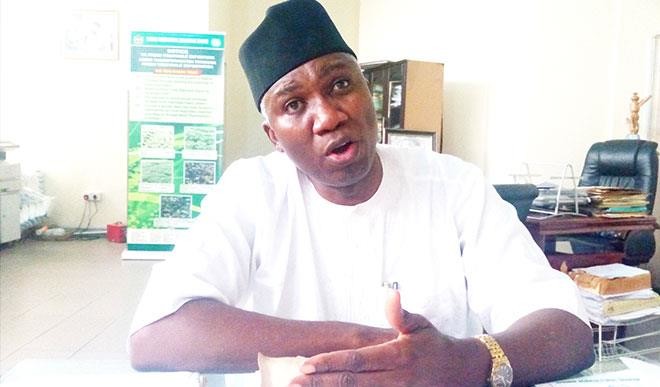‘Why EU extends suspension on Nigerian beans’
Dr. Vincent Isegbe is the Coordinating Director, Nigerian Agricultural Quarantine Services. In this interview, he tells Daily Trust why the European Union (EU) extended the suspension of Nigerian beans for another three years. Excerpts: What is the update on the suspension of Nigerian beans by the EU? It’s rather unfortunate that the European Union has […]


Dr. Vincent Isegbe is the Coordinating Director, Nigerian Agricultural Quarantine Services. In this interview, he tells Daily Trust why the European Union (EU) extended the suspension of Nigerian beans for another three years. Excerpts:
What is the update on the suspension of Nigerian beans by the EU?
It’s rather unfortunate that the European Union has extended the suspension by another three years. The first one was one year, which started June last year and was supposed to have ended 30th of June this year. Unfortunately by 1st of July, the EU issued regulation No 2016/874 which extended the suspension for another three years. According to them, they wanted us to have more control over the quality of beans that is being exported to the EU.
It is rather unfortunate and very embarrassing and painful – something that we in quarantine are saddened about because we are actually looking forward to the lifting of the suspension on or before June 30th. So it came to us as a shock. I believe the EU was looking for something, which for some reasons was not there. As a country, we need to play according to the international rules and regulations. We are a member of the World Trade Organisation (WTO) and there are certain requirements that we have to fulfill as members of body because we are trading partners with other countries. It is only in Nigeria – a very serious agricultural country – that we don’t have quarantine services at the critical points, especially the seaports from where agricultural produce are exported in bulk.
What are the reasons the EU gave for this suspension?
One of the critical issues the EU raised was that they wanted us to show evidence of export control. Two, traceability: how efficient is our traceability system. The third issue has to do with the structure put in place.
Concerning the issue of export control, you will be surprised that someone exported beans through our seaport to EU in the course of the one year suspension and the beans were sent back to Nigeria. We don’t have access to most of the seaports and so we are not in a position to know and check all the agricultural produce that leave the country. So you see how difficult it is for us to trace these kinds of people.
Following the federal government directive in 2011 for 48 hours clearance and cargo inspection, some government agencies were asked to leave the ports and quarantine service was one of those asked to leave the ports. As critical as quarantine is, we had to obey government order and so we left. The same circular said we can be called upon by Customs on needs basis. If Customs needs us, they will call us, if they do not notify us that there is a consignment for us to inspect, we will not know. All the beans that were eventually returned during the last period that resulted in that suspension did not pass through the Nigerian Agricultural Quarantine Service (NAQS), this is on record.
Are there other crops also affected by this ban?
No. Only beans has been put under the three-year suspension. We may have issues on one-on-one cases; maybe for some reasons a consignment has an issue, only that consignment will be treated as the case is. In some cases, they may want a confirmation either on the photo-sanitary certificate or the fact that these goods came from Nigeria, we issue the confirmation online.
We’ve been having very fruitful vegetable exports. We are showcasing what we call Emerging Agricultural Commodities – things that we neglected like tiger nut, Shea butter, cinnamon and a lot of culinary spices, which are fetching a lot of money and the demands are growing especially in Asia and the Middle East.
In fact, our hibiscus is the best in the world because you can titrate up to four times and more than 1000 containers leave this country annually.
